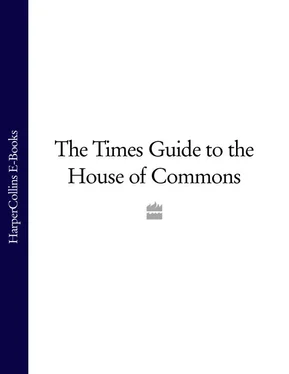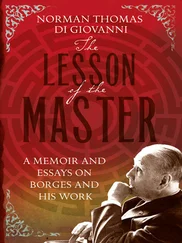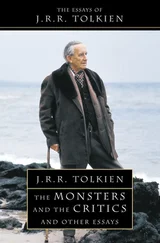In the pantheon of retiring MPs, I must make special mention of Sir Nicholas Winterton, Tory MP for Macclesfield since 1971. He and his wife, Ann, were known as Mr and Mrs Expenses. Sir Nicholas was wildly opinionated, red-faced and rambunctious (last year he slapped the bottom of the Labour MP Natasha Engel in the Commons tea room). But his retirement cannot pass without remembering his supremely ill-judged remarks about why he needed to travel first class: “If I was in standard class, I would not do work because people would be looking over your shoulder the entire time, there would be noise, there would be distraction. They are a totally different type of people: they have a different outlook on life. They may be reading a book but I doubt whether they are undertaking serious work or study.”
So goodbye, Sir Nicholas, see you in economy. I will actually miss the rather gentle manner of Sir Peter Viggers, an MP for 36 years, who is now spending more time with his ducks, who never even liked their cute little house. Andrew MacKay, who with his wife, Julie Kirkbride, was another Mr and Mrs Expenses, was amazingly orange. His seat in the Commons, on the aisle, first bench back, will always have a tangerine hue for me. John Gummer, who seems to have been around for ever, is gone but not forgotten after his expenses got tangled up with his attempt to get rid of his moles. And then there is Mr Moat (aka Douglas Hogg), whose final act was to give an interview clarifying that he had not claimed for the moat per se and noting that, anyway, it wasn’t a moat at all but a “broad dyke”. Does that make it worse? After all, there is a certain majesty in a moat.
On Labour’s side, in addition to the expenses villains, there are the lobbyists, not to mention the plotters. Stephen Byers, who once described himself as a cab for hire, is now out in the big bad world, his light on. I will never have to hear the patronising undulations of Patricia “Patsy” Hewitt’s voice again. Geoff “Buff” Hoon, the man who specialised in never being there when it came to Iraq, now really won’t be there. Despite it all I rather liked his plodding pedestrian ways. Other “hall of shame” retirees include Kitty Ussher, a once rising star, who wrote a two-page letter explaining why her London house needed major repairs: “Most of the ceilings have Artex coverings. Threedimensional swirls. It could be a matter of taste, but this counts as ‘dilapidations’ in my book!” And Kitty, let us remember, was a member of the People’s Party.
So where is the good in the good, the bad and the ugly? Almost everybody else, actually. Of particular note is James Purnell, facial hair fashionista, whose sideburns will be missed by me. His shock resignation from the Cabinet almost brought down Gordon Brown. Mr Purnell was the brave one. It could have all been so different if he had succeeded.
For us sketch writers, John Prescott is simply irreplaceable: but he lives on, in the Twitter-sphere, boldly going where no one would have predicted he would. I will miss the bolshie proclamations of Labour’s Andrew Mackinlay and the snide if somewhat forlorn comments of Chris Mullin, who proved to be a better diarist than politician. Others of note to go include Labour’s Bob Marshall-Andrews, a man more or less permanently in opposition to his own side. In September 1997, commenting on an opinion poll that gave Tony Blair a 93 per cent approval rating, he said: “Seven per cent. We can build on that.”
Others to be missed include
• Tony Wright, the much respected Labour MP who coined the phrase “Manure Parliament”. He headed the eponymous committee on parliamentary reforms with tenacity and, dare I say it, wisdom.
• The Rev Ian Paisley, ancient Galapagos tortoise, who always spoke as if he was sermonising, possibly because he was.
• Michael Howard and Ann Widdecombe, linked forever by her “something of the night” comment about him. He was always worth watching, an astute and clever parliamentarian, and she was the only true reality TV star in the Commons: “I always imagined that when I was making my last speech, I would be sad. Instead I find that my uppermost sentiment is one of profound relief.”
• David Howarth, a thoughtful Liberal Democrat, who returns to teach law at Cambridge. “People talk about standing down. I am standing up!” he told me. He is gloomy about politics, saying that it is no longer a “high trust” profession. Like estate agents, MPs now must always be watched like hawks. Inevitably, he said, the result will be that it attracts less trustworthy people.
• Martin Salter, the Labour MP for Reading West, was larger than life and louder than it too. Before he left, I found him in his chaotic office brandishing a “stress banana”, a gift. “I use my banana for pointing,” he chortled. “People say, ‘Don’t Miliband me!’” His office was plastered with pictures of fish. “I am leaving politics to spend more time with my wife, my camper van and my fish, in that order.”
Last but not least in any way is Sir Patrick Cormack, the Tory grandee who bowed out after 40 years. He was a bit of an old buffer but no one doubts that he loves Parliament (which he pronounced “Parl-i-ament”, with a little wiggle). When I stopped by to see him in his magnificent office, which he was emptying out, there was palpable regret in his voice as he talked of his career ups and downs. He had wanted to be Speaker but, when he stood, received only 13 votes. “You take the rough with the rough!” he noted, his pug face crinkling. “Absolutely!”
So, at 71, he left to spend more time with his weekends. “It will be a terrible wrench. It has been my life for more than half my life. It is a very funny feeling at the moment: it is the last of this, the last of that. I am still behaving as normal but all the time I am sort of signing off.” It is hard to imagine the chamber without Sir Patrick. For 40 years, whenever “Parl-i-ament” was sitting, he spent at least three hours a day seated in his place, the middle aisle seat towards the back. In his last speech, he ended with these words of Catullus: “Ave atque vale”. Hail and farewell, indeed. Ann Treneman is the author of Annus Horribilis: the Worst Year in British Politics (2009)
The tragedy of Gordon Brown
David Aaronovitch
Times columnist
It was the longest understudy, for one of the shortest performances. A decade of increasingly unquiet waiting for his moment to take over from Tony Blair was followed by just under three years in the long-coveted post. Departing No 10, Gordon Brown left behind a reputation for grumpiness, intellectual brilliance, ambition and, in the end, enduring personal tragedy.
The grey, jowly, plodding figure who left office was scarcely recognisable as the brilliant, Heathcliffian man who entered the Treasury in 1997. In opposition, Mr Brown had shredded his opponents with thunder and wit, which turned to lightning and cleverness early in new Labour’s first term. In the first week of that term he announced the independence of the Bank of England, a reform that was to become accepted by his political rivals, but which was not even put to the Cabinet.
His most deployed political term in the first two years of the Labour Government was the legendary “prudence”, who was invariably accompanied by “with a purpose”. He knew exactly what he was doing; he was the great intellectual of modern politics. His supporters told anyone who would listen that he was the real brains behind new Labour. He was literally unassailable.
When writers use terms such as “paradox”, “enigma” and “contradiction” it is often a sign that they simply do not understand the subject. Gordon Brown has had these words applied to him more often than any other modern British politician. It has been hard, throughout his career in government, to explain how his different characteristics coexisted within the same person.
Читать дальше












